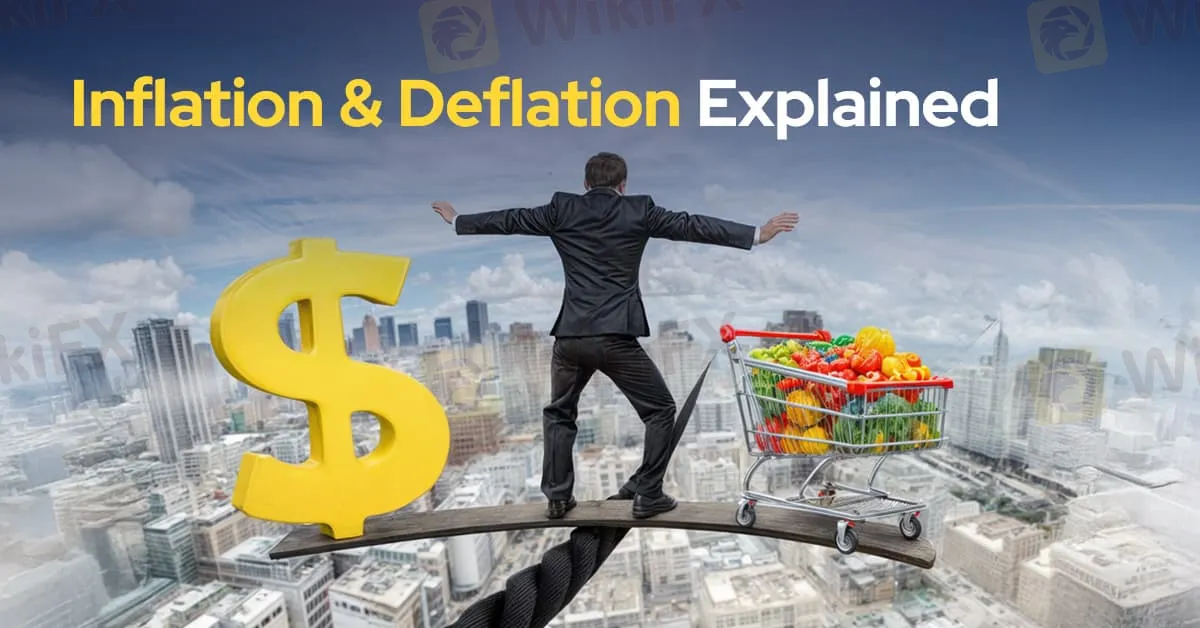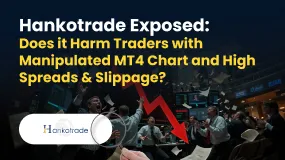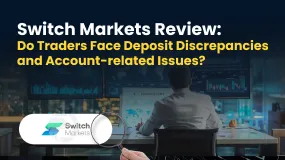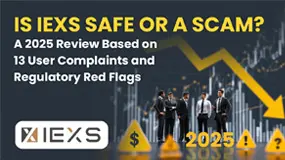简体中文
繁體中文
English
Pусский
日本語
ภาษาไทย
Tiếng Việt
Bahasa Indonesia
Español
हिन्दी
Filippiiniläinen
Français
Deutsch
Português
Türkçe
한국어
العربية
Inflation & Deflation Explained
Abstract:This article delves into the definitions of inflation and deflation, their causes, effects, and implications for the trading environment.

Inflation and deflation are fundamental economic concepts that play a crucial role in shaping markets, purchasing power, and overall economic stability. These terms are essential for anyone involved in trading, investing, or understanding the financial landscape. This article aims to explain the definitions of inflation and deflation, explore their causes and effects, and discuss their implications for traders and the broader economy.

Inflation refers to the general rise in the prices of goods and services over time, which leads to a decline in the purchasing power of money. In simpler terms, inflation means that each unit of currency buys fewer goods and services than it did previously. Inflation is usually measured using indices such as the Consumer Price Index (CPI) or the Producer Price Index (PPI), both of which track price changes in a basket of consumer goods and services.
Inflation can result from several factors. One common cause is demand-pull inflation, which occurs when the demand for goods and services exceeds supply. For instance, during an economic boom, increased consumer spending can push prices higher as businesses struggle to meet demand. Another cause is cost-push inflation, which arises when production costs, such as wages and raw materials, increase. Companies may then pass these higher costs onto consumers by raising prices. Finally, there is built-in inflation, which is tied to adaptive expectations. As workers demand higher wages to cope with rising living costs, businesses respond by increasing prices, creating a cycle that sustains inflation.
The effects of inflation can be both positive and negative. On the positive side, moderate inflation is often viewed as a sign of a growing economy. It encourages spending and investment, as consumers are incentivized to make purchases before prices rise further. However, on the negative side, high inflation erodes purchasing power, which can reduce consumer confidence and spending. In extreme cases, hyperinflation—characterized by rapid and out-of-control price increases—can lead to economic collapse, as seen in historical examples like Zimbabwe and Weimar Germany.

In contrast, deflation is the opposite of inflation and involves a general decrease in the prices of goods and services. During deflation, the purchasing power of money increases, meaning that consumers can buy more with the same amount of currency. Although this might sound beneficial, deflation can signal underlying economic problems.
Several factors can cause deflation. A key cause is a decrease in aggregate demand, which happens when consumer and business spending falls significantly. This could result from economic recessions, high unemployment, or declining consumer confidence. Another factor is technological advances, which can lower production costs and thus reduce prices. While beneficial to consumers, this can lead to deflationary pressures if price drops are significant. Additionally, tight monetary policy—where central banks reduce the money supply to combat inflation—can sometimes overshoot and trigger deflation.
The effects of deflation present challenges to the economy. One significant issue is decreased consumer spending. When people expect prices to continue falling, they may delay purchases, which reduces demand and can lead to further price declines. Deflation also increases the burden of debt. As prices fall, the real value of debt rises, making it harder for borrowers to repay loans, which can lead to higher default rates and financial instability. Prolonged deflation can result in stagnation, with businesses struggling to stay profitable, leading to high unemployment, reduced production, and declining wages.
Both inflation and deflation have profound implications for traders and investors. For instance, interest rates are often adjusted by central banks in response to these economic conditions. Central banks may raise interest rates to combat rising inflation or lower them during deflation to stimulate spending. Additionally, inflation can erode the value of fixed-income investments like bonds, making equities and commodities more attractive, while deflation may increase demand for safe-haven assets like gold. Both inflation and deflation can also lead to market volatility, as uncertainty about the economic environment can make markets more unpredictable. Traders need to stay informed about key economic indicators and central bank policies to make sound decisions.
In conclusion, understanding inflation and deflation is vital for navigating the complex world of finance. Inflation, when moderate, often signals economic growth, but unchecked inflation can harm purchasing power and market stability. Deflation, while it may offer short-term benefits, carries significant long-term risks, such as economic stagnation. For traders and investors, keeping a close watch on these trends is essential for making informed decisions and positioning themselves effectively in the ever-evolving financial markets.

Disclaimer:
The views in this article only represent the author's personal views, and do not constitute investment advice on this platform. This platform does not guarantee the accuracy, completeness and timeliness of the information in the article, and will not be liable for any loss caused by the use of or reliance on the information in the article.
Read more

Hankotrade Exposed: Does it Harm Traders with Manipulated MT4 Chart and High Spreads & Slippage?
Have you witnessed a manipulated MT4 chart on Hankotrade login, showing inaccurate trading figures? Have you been victimized by high swap fees, inflated spreads, and massive slippage? Is the payment processing time too long at Hankotrade? Do you face downtime issues, especially when the New York trading session is on? These are some top complaints against the Belize-based forex broker. In this article, we have shared these complaints. Take a look!

Switch Markets Review: Do Traders Face Deposit Discrepancies and Account-related Issues?
Do you fail to deposit your funds into the Switch Markets forex trading account? Earned profits, withdrew them too, but did Switch Markets block your deposits? Wanted to close your trading account due to payment-related issues, but in turn got your emails blocked by the Australia-based forex broker? Faced a negative trading account balance because of illegitimate trade order execution? Many traders have shared these stories about Switch Markets on broker review platforms. In this Switch Markets review article, we have mentioned the same. Read on!

Is IEXS Safe or a Scam? A 2025 Review Based on 13 User Complaints and Regulatory Red Flags
You're asking a direct and important question: Is IEXS safe or a scam? As someone who might trade with them or already does, this is the most important research you can do. While IEXS says it is a global broker with over ten years of experience, a detailed look at its regulatory status and many user reviews shows serious warning signs that cannot be ignored. The evidence suggests a high-risk situation for traders' capital. This review will examine the available information, from official regulatory warnings to concerning first-hand user complaints, to give you a clear and fact-based view of the risks involved in trading with IEXS. Our goal is to give you the facts you need to make a smart decision.

Having Trouble Getting Your Funds Out of IEXS? A Simple Guide to Delays and Solutions
Are you having trouble withdrawing funds from your IEXS account or facing delays getting your funds? Not being able to access your own capital is one of the most stressful situations any trader can face. It breaks down your basic trust with a broker. This isn't just annoying - it's a serious problem that can mess up your financial plans and cause a lot of worry. This guide goes beyond basic advice. We'll look at real user experiences and official regulatory information to give you clear answers. Our goal is to help you understand why IEXS withdrawal problems happen and show you practical steps you can take. We understand your concerns and want to give you the information you need to handle this tough situation.
WikiFX Broker
Latest News
IEXS Review 2025: A Complete Expert Analysis
IEXS Regulation: A Complete Guide to Its Licenses and Safety Warnings
【WikiEXPO Global Expert Interviews】Ashish Kumar Singh: Building a Responsible and Interoperable Web3
CySEC Flags 21 Unauthorized Broker Websites in 2025 Crackdown
CQG Partners with Webull Singapore to Power the Broker’s New Futures Trading Offering
WinproFx Withdrawal Problems: A Complete Look at Delays and User Reports
Factory Orders Data Show Rebound In August
Interactive Brokers Expands Access to Taipei Exchange
Simulated Trading Competition Experience Sharing
WinproFx Regulation: A Complete Guide to Its Licensing and Safety for Traders
Currency Calculator




